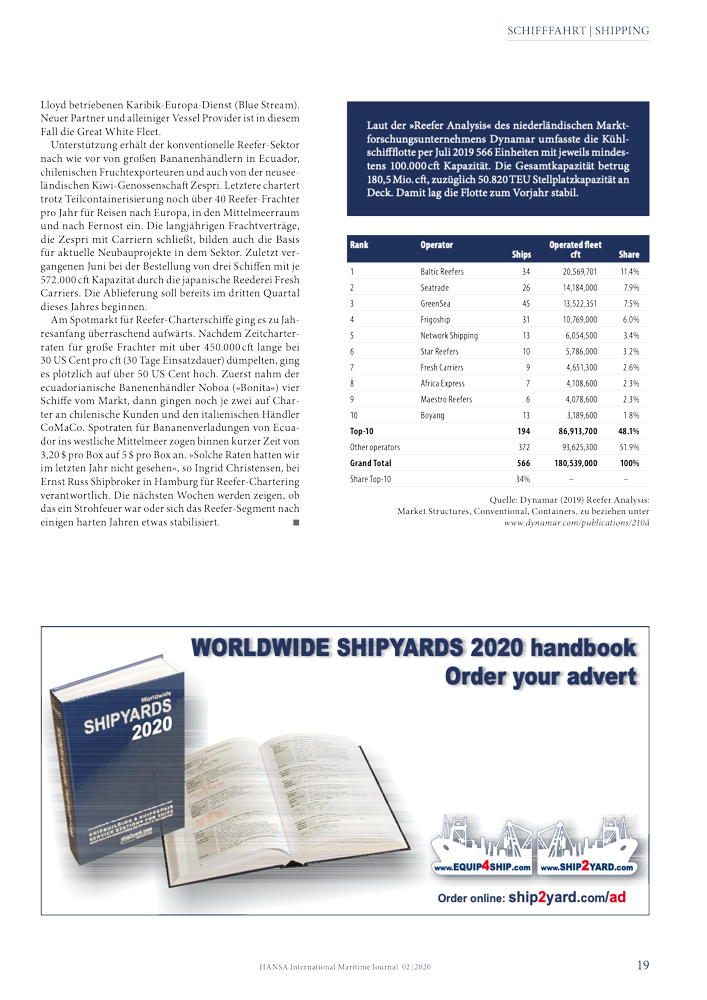Vessels deployed in the fish trades are well protected against competition by the container lines, says Dynamar consultant Frans Waals, author of the »Reefer Analysis« study
The demise of specialist reefers seems to have continued over the past year. Can operators stop the trend or[ds_preview] will conventional reefer shipping disappear within a few years?
Frans Waals: The answer can be split into two parts. For the big vessels, trading fruit and vegetables, I think the future is indeed bleak. They are operating at rock bottom prices and face heavy competition from containers. However, for the small ships, carrying fish and meat, the situation is not that bad. They should be able to survive quite some time, especially for transhipment of fish from trawlers in the open sea. Obviously, in that business, containers are no competition.
Are specialized reefer container services (fast, direct and dedicated) the best solution? Can more specialized carriers convert to containers?
Waals: For the time being, specialised reefer services seem to be the domain of the large fruit traders. Attempts to start other dedicated reefer container services have failed, such as the ones of Seatrade. The more dedicated reefer services by the major container carriers also require the support of one of the fruit traders.
What’s in store for the market this year?
Waals: Seaborne reefer trade is anticipated to continue growing, but growth looks to be slowing down. Considering the anticipated global economic cooling, I don’t think we will see the same high growth rates during the coming years as we did before. The big question is what effect IMO2020 will have on the conventional reefer sector? So far, there is no indication that the old fuel-hungry ships are en masse heading to the breakers, but this may change …


















